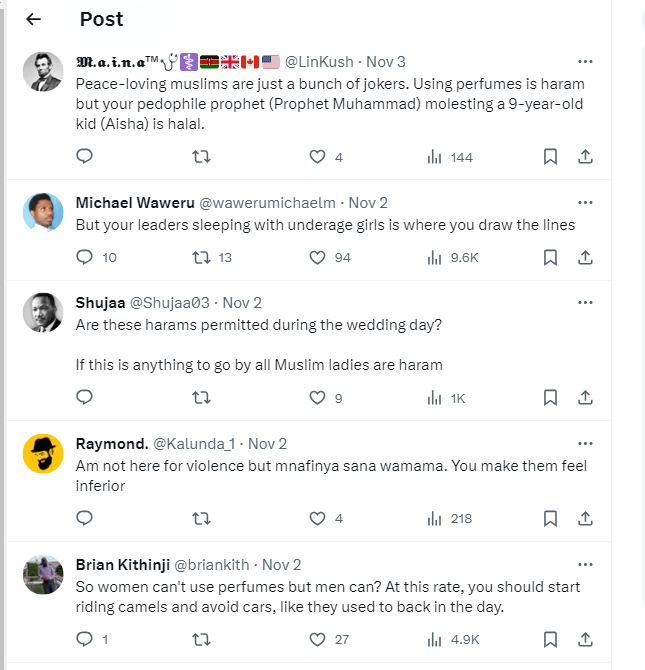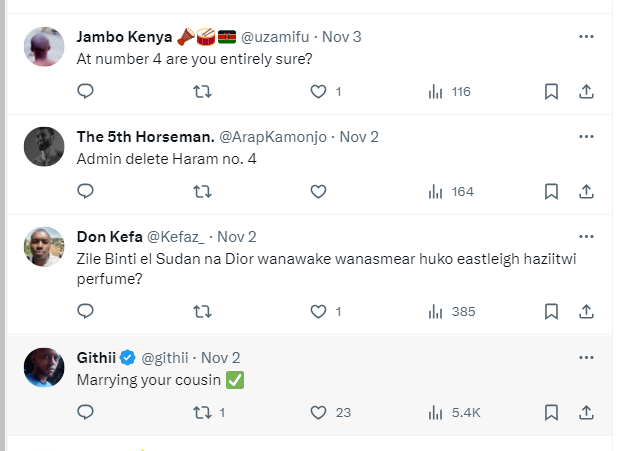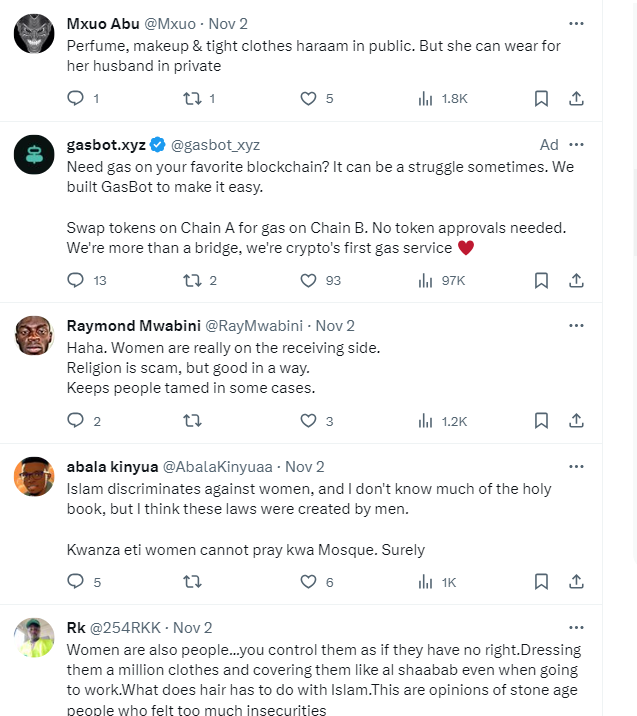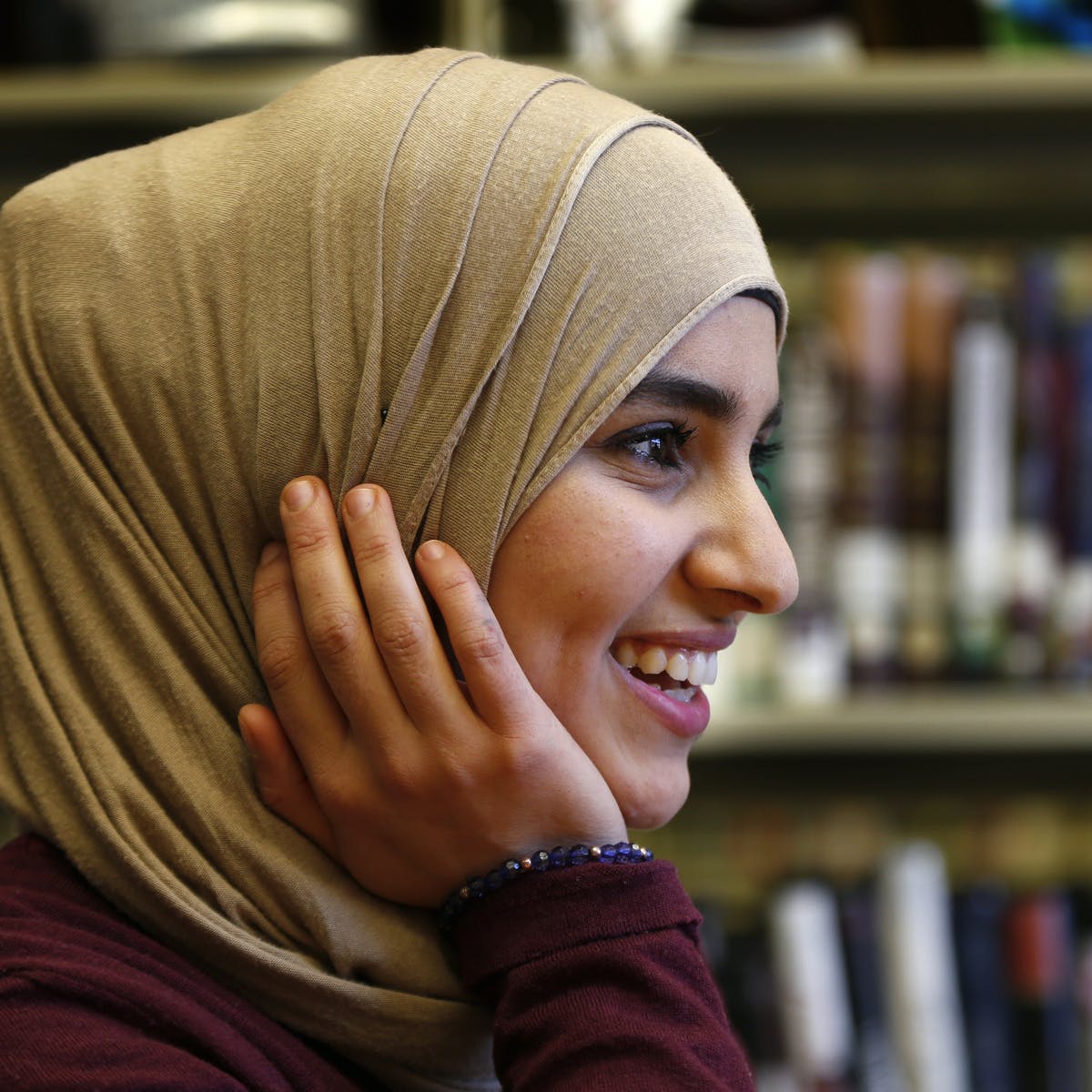The Jamia Mosque Nairobi, one of the largest mosques in Kenya, has come under fire for publishing a list of prohibited conducts for women.
The list, which includes showing hair in public, wearing hair extensions, wearing tight clothes, using perfumes, doing heavy makeup, and eyebrow plucking, has been met with harsh backlash from Kenyans on social media.
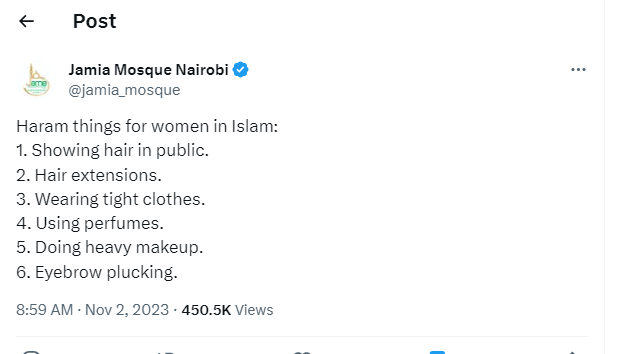
Many Kenyans have accused the mosque of being misogynistic and of promoting a narrow interpretation of Islam. Others have argued that the list is unnecessary and that women should be free to dress and behave as they see fit.
The mosque has defended the list, saying that it is simply following Islamic law. However, many critics have pointed out that there is a wide range of interpretations of Islamic law, and that the Jamia Mosque Nairobi’s list is particularly restrictive.
The controversy has sparked a debate about the role of religion in society and the rights of women. Some Kenyans have argued that the mosque should not be allowed to dictate how women should dress or behave, while others have defended the mosque’s right to follow its own religious beliefs.
The debate is likely to continue, as the Jamia Mosque Nairobi’s list of prohibited conducts for women has highlighted the deep divisions in Kenyan society over issues of religion and gender.
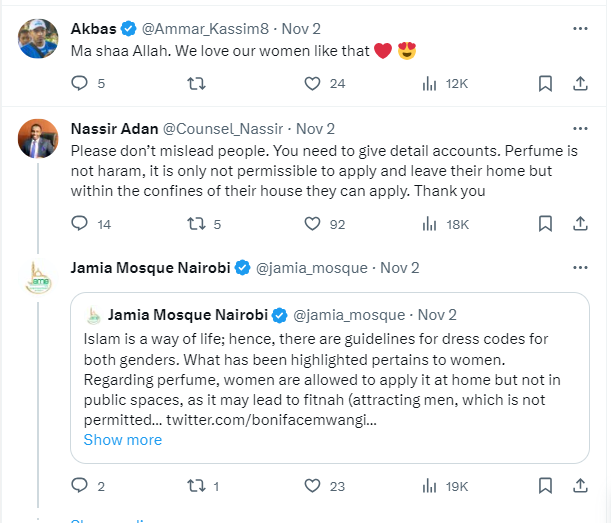
Reactions
